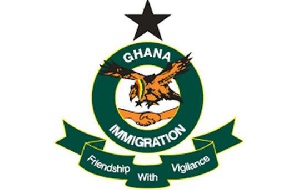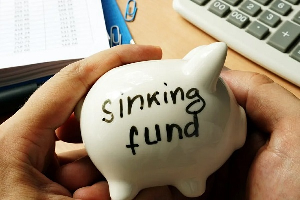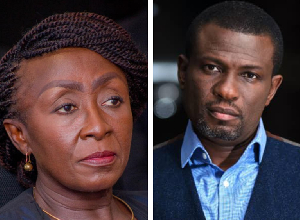In a global world where every continent, nation and almost everyone within the sphere has preference and targets to attain satisfaction, we can only be guided by our scale of preference before we proceed to consider which opportunity cost to forgo in order to acquire the most valuable that suits the present needs.
What may usually be the most pressing need for the United Kingdom, Canada, US, Germany, Netherlands et al may not be of essence to Togo, Mali, DR Congo, Ghana etc. which by virtue of circumstances can’t afford basic necessities of life such as food, shelter, portable drinking water coupled with the canker of corruption that has bedeviled us for ages.
Under such probable circumstances some may not accept issues of human right based on convenience. The right of vulnerable groups such as LGBTI persons have been greeted with mixed feeling most especially in countries where the act is totally abhorred for obvious reasons.
It wasn’t surprising when the outcome of a survey conducted by the Africa Centre for International Law and Accountability (ACILA) in June 2018 revealed that Ghanaians are more concerned (worried) about corruption than issues of LGBTIs (Lesbians, Gays, Bisexual, Transgender and Intersexual).
That alone points to the fact that, when the discussion is narrowed deeply to which opportunity cost to forgo on a scale of preference, Ghanaians will prefer their governments successively committing resources to fighting corruption than issues of LGBTIs.
The survey also revealed that even though corruption emerged as the number one issue of concern to Ghanaians, it was followed closely by LGBTI issues.
That is quite frightening because respondents did not consider armed robbery, which came a distant fifth as more concerning than LGBTI.
Turning to the rights to all persons, the 1992 constitution of Ghana states in chapter 5 article 12(2) that; “every person in Ghana, whatever his race, place of origin, political opinion, colour, religion, creed or gender SHALL (emphasis) be entitled to the fundamental human rights and freedoms of the individual contained in this article but subject to RESPECT for the rights and freedoms of others and for the public interest” This obliges the state to respect, protect, and promote the rights all to safeguard and guarantee peaceful coexistence.
In Ghana’s appearance at the United Nations Human Rights Council (UNHRC) in November 2017, Ghana, represented by Ms. Gloria Akufo, Attorney-General and Minister for Justice and her team rejected the legalization of same sex marriage at the Universal Periodic Review Mechanism Anecdotal evidence suggests, the position of the state reflects the widely held views
of Ghanaians that same sex marriage should not be legalized in Ghana.
However, the sigh of relief to our democratic dispensation is that, despite the rejection of the legalization, Ghana accepted suggestions/recommendations to guarantee and protect the right of
this vulnerable persons (LGBTI).
This, one may say, was accepted for convenience until government ensures proper education to the public, the president leads the campaign and have the blessings of parliament to intensify the education on the fundamental human rights and freedoms of all persons.
Thanks to a civil society organization such as ACILA that has timely
intervened in leading the way with a research followed swiftly with workshops for journalists in Ghana.
The consequential result of inciting society towards the vulnerable LGBTI groups by the speaker of parliament and some notable people in society will only mean we accepted morals and practicing otherwise.
For the sake of reminding ourselves, these are the recommendations Ghana accepted;
1. Take steps necessary to protect LGBTI persons from violence and discrimination on the basis of sexual orientation and gender identity.
2. Ireland also recommended that Ghana should ensure that victims of discrimination and violence based on sexual orientation and gender identity have access to rehabilitation and remedy and that all perpetrators are punished.
3. Czech in their recommendation asked from Ghana to take measures to fight against violence and discrimination based on sexual orientation and gender identity.
4. Italy stressed the need for Ghana to continue to implement the discrimination reporting system in order to tackle stigmatization and discrimination of the most vulnerable groups.
Enumerated above are but a few recommendations Ghana accepted, taking credence from the already existing rights in Article 12 of the 1992 constitution.
Assessing Ghanaians perception and appreciation of issues to do with LGBTI persons in 2017, ACILA’s survey data attributed to 87 per cent of Ghanaians in five regions (Greater Accra, Volta, Ashanti, Northern and Western) said they have knowledge of the fundamental human rights provision in the 1992 constitution and very worrying is the fact that, almost the same 87
per cent indicates their opposition to the rights of LGBTI persons to freedom of assembly while 60 per cent disagree such vulnerable people deserve equal rights as heterosexuals.
In short (some humans are more human) very unfortunate! What becomes of the recommendations accepted by Ghana to protect the right of the vulnerable from stigmatization, discrimination and ensure their security?
The debate is not for LGBTI persons to have their sexual act legalized in Ghana as some like Mr. Foh Amoaning may ignorantly want us to believe, far from that. Humans and vulnerable as we are, let’s imagine a country where the association of amputees, association of persons living with
albinism, association of the blind are treated based on being a minority group.
Their freedoms and rights are violated and they are discriminated against and assaulted just like LGBTI people.
With reference to the United Nations Universal Declaration of Human Rights adopted on 10 December 1948 (General Assembly resolution 217 A), Article 1 states “All human beings are born free and equal in dignity and rights. They are endowed with reason and conscience and should act towards one another in a spirit of brotherhood”.
The fascinating one is the Article 3 which states “Everyone has the right to life, liberty and SECURITY of person”.
How guaranteed is the security of LGBTI persons in Ghana? This is a question I would love to ask the president of the republic should I ever have the opportunity to meet him knowing very well the increasing attacks abuse and the worrying statistics that revealed the high probability of Ghanaians rejecting the rights of LGBTI people to hold public meeting to discuss their issues.
According to the ACILA survey, majority of the respondents stated their refusal to accept emergency medical care from persons perceived as Gays or Lesbians. This is ridiculous right? In my earlier article published on voltaonlinegh.com titled “Sexual Orientation; the Crime factor” I
stated emphatically that, the problem is not about Ghanaians discriminating, assaulting and dehumanizing LGBTI persons on perception but the problem basically has to do with our ignorance of what it ought that must be their right, your right and our right as enshrined in the constitution and other treaties signed by the republic.
If you’re much aware that Ghana has signed unto the United Nations Human Rights declarations, you can’t be selective in its implementation. One of such declaration stated in article 12 “No one shall be subjected to arbitrary interference with his privacy, family, home or correspondence, nor
to ATTACK (emphasis), upon his honour and reputation. Everyone has the right to the protection of the law against such interference or attacks.
Again, article 20(1) of the same universal declaration states, everyone has the right to freedom of peaceful assembly and association”. This alone tells how wrong the 87 per cent of Ghanaians who do not seem to agree that minority group such as the LGBTI people must hold meetings or appear in a group.
I sincerely think the subject and debate must dwell more on the Rights and not legalization considering the soaring figures of violence against vulnerable groups. The misconception that gays and lesbians don’t have a right must be discarded before it turns to ruin the very core of our
fundamental human right and the life of innocent citizens who in their own right have conscience to choose right from wrong.
To conclude, many of us may be guilty of discrimination or at any point in time stood against people who belong to minority groups like PWDs and LGBTI.
When the dice is cast, certainly, we may all fall victim to being unfairly unjustified in our assessment of issues at some point of
our life.
Fred Duhoe
Freelance Journalist
Human Rights Defenders - Ghana
fkmduhoe.gh@gmail.com
Opinions of Sunday, 23 December 2018
Columnist: Fred Duhoe



















